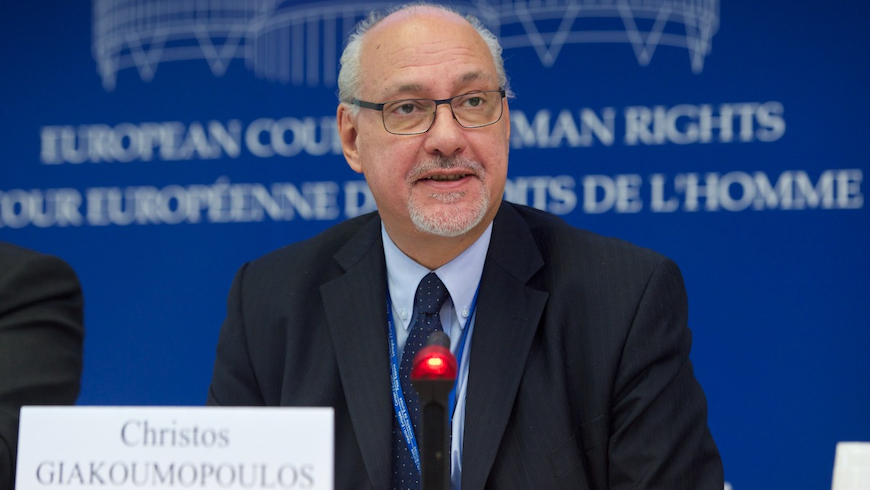Speech by Mr. Philippe Boillat
Conference on the long-term future of the European Court of Human Rights
Oslo, 7 April 2014
Dear Minister, dear President of the Court, dear Professor, Excellences, ladies and gentlemen, dear friends,
It is an honour and a real pleasure for me to address you on behalf of the Secretary General of the Council of Europe, Mr Thorbjørn Jagland, under whose auspices this conference is being held. Mr Jagland sends his apologies for not being with us this morning. I join him in thanking the organisers, PluriCourts, for this timely and relevant initiative.
Two years after the Brighton Conference, following an intense and highly productive period, we are now turning to a fundamental issue for the Council of Europe and its role in Europe – the longer-term future of the Convention system and the Court. Here I stress ‘Convention system’: even if the Court is the most visible sign of the Council of Europe’s human rights engagement, its future depends on a number of further mechanisms at all levels – from domestic implementation to Strasbourg Court proceedings, and the important link between domestic and European levels provided by the Committee of Ministers’ supervision of execution. This global approach is not new: it has been at the heart of all reflections on the Convention system since its inception and particularly so since the Rome Ministerial Conference in 2000.
Recent years have seen encouraging progress at all levels, both domestic and in Strasbourg.
Domestically, the implementation of the Convention has moved forward in a number of ways: better governmental and parliamentary procedures to ensure the Convention conformity of draft legislation; the development of effective domestic remedies; and improvements in domestic capacity for rapid execution of the Court’s judgments.
Protocol no. 14 has shown its strengths in improving the situation of the Court. The Single Judge system in particular, and accompanying reforms within the Registry, seem to have brought the problem of clearly inadmissible applications under control. Parallel reforms of the Committee of Ministers’ supervision of execution have also created efficiency gains, allowing a significant decrease in the number of judgments awaiting closure.
Notwithstanding these achievements – including the new Protocols no 15 and 16 –, the system remains under strain. This is notably due to the persistently high numbers of applications made to the Court. Far too many of these are repetitive applications arising from structural or systemic issues. One can only sympathise with the Court’s insistence that the primary responsibility for preventing repetitive cases lies with the States Parties concerned, under the supervision of the Committee of Ministers – but not with an international tribunal. It is no more than subsidiarity in practice.
Alongside these problems, there are growing challenges and criticisms to the legitimacy of the Court, its judges and its case-law; to the idea of European supervision of human rights protection; and perhaps even to the concept of universal human rights. Such criticisms represent a threat to the basic philosophical, political and institutional concepts that lie at the origin of our system. In their possible concrete effects – widespread disrespect for Court judgments, or a State Party quitting the Convention – these criticisms ultimately represent a political threat to the system’s continued effectiveness and viability.
To address all these problems in a longer-term perspective, we need to be ‘thinking outside the box’. After two years’ of extremely detailed technical analysis and discussion, sometimes repeating debates first held long before, we need to raise our heads and look to a more distant horizon. To this end, the Council of Europe has held an open consultation, and has invited independent, eminent legal personalities to participate in its reflections. And the Steering Committee for Human Rights, which is at the centre of our work, has come in its entirety to participate in this Conference.
So what can we expect from this Conference? Our common aim must, I believe, be to find ways to increase the effectiveness of the system. Beyond that, I will not attempt to anticipate our discussions; but I will seek to identify certain basic principles and avenues for reflection.
One, the material rights enshrined in the Convention are “untouchables” Two, subsidiarity: the Parties to the Convention must implement it fully, in good faith – including by respecting and protecting Convention rights and providing effective domestic remedies. Three, individuals have a right to apply to the Court. Four, judicial determination of complaints: decisions must be issued by a judicial body, whose jurisdiction must be compulsory for all Parties. Five, the Parties are obliged to implement Court judgments. And six, collective enforcement: including through effective supervision of execution of Court judgments by the Committee of Ministers of the Council of Europe.
These basic principles may appear to describe the current system – and of course, in general terms, they do – but as a basic structure, they offer potential for considerable variation. We have already seen some striking innovations by the Court, such as the pilot judgment procedure, prioritisation of applications and the grouping of cases into single judgments.
We can also ask ourselves what some of these basic principles should mean in practice. I will mention some questions that have already been tentatively posed. For example, does a right of individual petition, coupled with the compulsory jurisdiction of the Court, mean that the Court must finally determine every application made to it? What does the principle of subsidiarity mean for the hierarchy of normative action between domestic and European levels, and for relations between the Court and domestic authorities? What measures should be available – and applied – within a system of collective enforcement in order to ensure that obligations are met?
Excellences, ladies and gentlemen,
The Convention is a legal instrument whose effectiveness, in the end, depends on political will: political will of domestic authorities to act within their areas of competence; and political will of national governments to act collectively at European level. So another question must be, how to reinforce this political will? How to translate that political will into effective action? What reforms are needed to ensure that domestic authorities become effective guarantors of Convention rights? And what reforms are needed to ensure that the Council of Europe provides effective technical assistance and political supervision?
A few questions on which we may reflect. I look forward to our responses.









